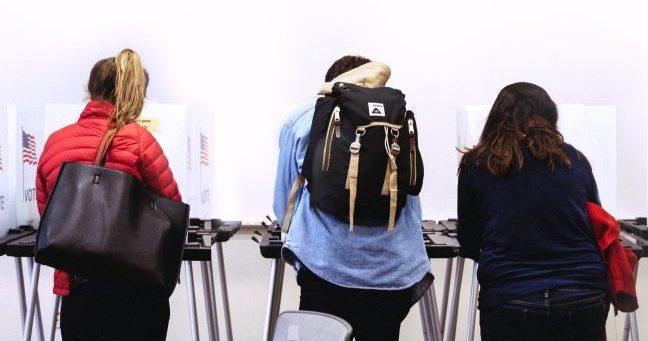In the context of politics, it’s common to think of the main demographics as being race, age, gender, geography and religion. Every politician and every candidate running for office will tweet, share and post a barrage of information or statements directed at particular identity groups they hope to capture at the polls.
Popular examples are communities of color, baby boomers, evangelicals, urban residents or women. In many of these groups, politicians see a stronger sense of a shared social or cultural experience and interests that mark the community as a distinct, cohesive demographic group.
There are plenty of figures and facts on the voting data of these groups so that campaign staff can see, for example, how they are doing among women. This data is used for marketing purposes, but it can also be put to a darker use. Trends in demographic-related voting patterns are also major pieces of data that inform gerrymandering, and the next redistricting hit will be on college kids.
We hear a lot about the gerrymandering of urban voters and communities of color. Looking at statistics about where these voters lean, it’s easy to discover that as of 2017, 62% of urban residents, 84% of black voters and 63% of Hispanic voters “leaned towards or identified with the Democratic Party.”
Editorial Board: When democratic corrosion requires popular action
These statistics show some of the most historic and obvious partisan leanings out of all demographics, and legislators are acutely aware of this when redrawing district lines to benefit their political goals and marginalize these votes.
But another less-frequently-mentioned group with nearly as significant of partisan leanings is college students.
It’s hard to think of college students as their own distinct demographic group, given the vast variety of other demographics into which they each fit. Colleges have become increasingly diverse throughout the last 20 years, making it seem less likely that students would share a cohesive enough social/cultural background or interests to warrant statistics on their partisanship as a demographic group.
And while it may seem more intuitive to demographically associate 18-22 year olds more by generation than by college status, students pursuing a secondary education are distinct from simply a generational assessment. Not only is their investment in education likely to signify some shared values, but while on campus, they form an uncommon geographical density that makes them uniquely vulnerable to gerrymandering.
An informed citizenry, a dynamic democracy: Fighting political misinformation
Their partisan split is significant. In 2016, 54% of U.S. university students identified with the Democratic Party, while only 25% identified with Republicans.
This data, combined with the knowledge there is a consistent location of democratic-leaning voter saturation, seems like a dangerous recipe for gerrymandering, especially as college enrollment increases across the U.S.
As redistricting committees begin to realize the political significance of overwhelmingly liberal college populations in their states, college students and urban voters might soon be known as a historically geographically marginalized voter group.
So for those of you turning down voting in your home state to make an impact in your college district — beware. As university populations grow, the effects of a college-enrolled liberal voter demographic will become more and more obvious. If the trend toward democratic student voting continues, left-leaning students may be in danger of having their votes all but gerrymandered away.
Savannah Donegan ([email protected]) is a sophomore studying economics.




















